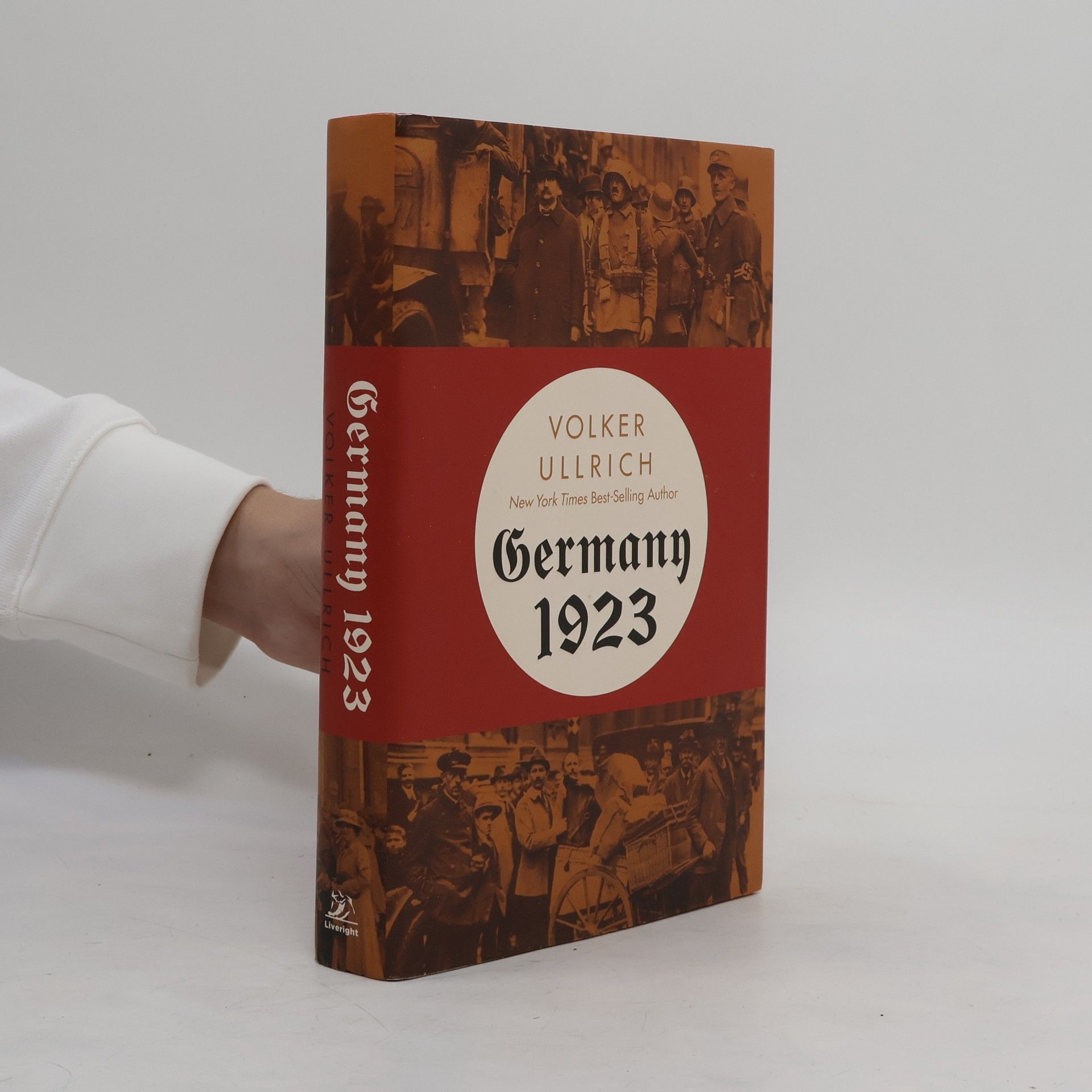Volker Ullrich Libri
Volker Ullrich approfondisce la storia del XIX e XX secolo. Il suo lavoro è caratterizzato da una profonda comprensione dei movimenti sociali e politici. L'approccio critico di Ullrich e la sua attenzione ai dettagli storici ne fanno un commentatore significativo del passato. Le sue analisi danno vita a momenti chiave della storia, offrendo nuove prospettive.






Hitler: Volume II
- 912pagine
- 32 ore di lettura
In the summer of 1939, Hitler was at the height of his power, having consolidated Nazi authority and restored Germany as a major Continental force. He aimed to provide the German people with living space and resources while exterminating those he viewed as obstacles, particularly the Bolsheviks and Jews. Despite early victories, such as the swift defeat of Poland and successful Blitzkrieg tactics in the west, the war ultimately led to Hitler's downfall. The invasion of the Soviet Union in June 1941 and the U.S. entry into the war marked a turning point, revealing that victory was unattainable. Volker Ullrich delves into Hitler's complex personality, crucial for understanding the war's trajectory and the Holocaust's development. As Germany's military commander, Hitler was deeply involved in strategy, revealing key traits: he was a reckless gambler, insecure and quick to blame others for his failures. When defeat became inevitable, he sought to punish the German people for not delivering victory. In September 1939, he vowed to wear a simple military tunic until the war's end, but on April 30, 1945, as Soviet forces approached his bunker, he committed suicide; Germany surrendered a week later. Hitler's destructive ambitions not only devastated Germany but also resulted in the deaths of millions across Europe.
Eight Days in May
- 336pagine
- 12 ore di lettura
The final week of the Third Reich's existence began on May 1, 1945, with the world unaware of the impending collapse. Hitler was dead, yet the war continued, leaving Germany in a state of uncertainty and despair. Volker Ullrich's compelling narrative immerses readers in this tumultuous period, where hope and terror coexist. With Admiral Doenitz as the new Fuhrer, based in the small Baltic town of Flensburg, the nation grappled with the aftermath of devastation. Berlin lay in ruins, and the end of hostilities was shrouded in confusion. Major Nazi figures remained at large, and rumors of a last stand in the Alps circulated, alongside tensions between the Western allies and the Soviet Union. Across Europe, millions—soldiers, prisoners, and displaced families—awaited the war's conclusion, caught in a limbo described as 'the gap between no longer and not yet.' Ullrich’s account is a fast-paced exploration of these chaotic final days, capturing the energy and complexity of a nation on the brink of transformation. It offers a vivid portrayal of the human experience during one of history’s darkest moments, making it a gripping read for those interested in this pivotal time.
Germany 1923
- 448pagine
- 16 ore di lettura
From a New York Times best-selling historian comes a gripping account of the crisis that threatened to unravel the Weimar Republic
Bismarck
- 192pagine
- 7 ore di lettura
Following German reunification in 1990 there has been a reassessment of Bismarck's role in European history
Adolf Hitler
- 1083pagine
- 38 ore di lettura
Schicksalsstunden einer Demokratie
Das aufhaltsame Scheitern der Weimarer Republik
- 317pagine
- 12 ore di lettura
Hitler. Upadek zła 1939-1945
- 848pagine
- 30 ore di lettura
Aż pięć lat czytelnicy musieli czekać na drugi tom słynnej biografii Hitlera autorstwa Volkera Ullricha. Ale czekać było warto. Uznana w Niemczech za najważniejszą biografię Hitlera dla następnych pokoleń, książka Volkera Ullricha to pierwsze monumentalne studium osobowości, która leżała u podstaw aspiracji politycznych i zbrodniczych działań przywódcy III Rzeszy. To właśnie Ullrich, jako pierwszy spośród historyków mierzących się z życiorysem Fhrera, postawił tezę, że nigdy nie uda nam się zrozumieć fenomenu Hitlera, jeśli odmówimy mu ludzkich cech, skupiając się jedynie na wizerunku potwora. Obalając mity i unikając pułapek, w które niejednokrotnie wpadali poprzednicy, Volker Ullrich tworzy zupełnie nowy, odkrywczy portret Adolfa Hitlera.
Der Kreisauer Kreis
- 159pagine
- 6 ore di lettura
Im «Kreisauer Kreis» um die führenden Köpfe Helmuth James Graf von Moltke und Peter Graf Yorck von Wartenburg schlossen sich entschiedene Gegner des Nationalsozialismus zusammen. Liberale, Gewerkschafter, Sozialdemokraten, Wissenschaftler und Geistliche erarbeiteten ein Programm für Deutschland nach dem Umsturz. Die Verbindung zum 20. Juli 1944 besiegelte das Schicksal dieser lange verkannten Widerstandsgruppe.
Die letzte Woche des Dritten Reiches hat begonnen. Hitler ist tot, aber der Krieg noch nicht zu Ende. Alles scheint zum Stillstand zu kommen, und doch ist alles in atemloser Bewegung. Volker Ullrich schildert Tag für Tag diese "zeitlose Zeit" und entführt den Leser in eine zusammenbrechende Welt voller Dramatik und Hoffnung, Gewalt und Angst. Sein Buch ist eine Zeitreise in den Untergang. Während die Regierung Dönitz nach Flensburg ausweicht, rücken die alliierten Streitkräfte unaufhaltsam weiter vor. Berlin kapituliert, in Italien die Heeresgruppe C. Raketenforscher Wernher von Braun wird festgenommen. Es kommt zu einer Selbstmordepidemie und zu Massenvergewaltigungen. Letzte Todesmärsche, wilde Vertreibungen, abtauchende Nazi-Bonzen, befreite Konzentrationslager - all das gehört zu jener "Lücke zwischen dem Nichtmehr und dem Nochnicht", die Erich Kästner am 7. Mai 1945 in seinem Tagebuch vermerkt.


